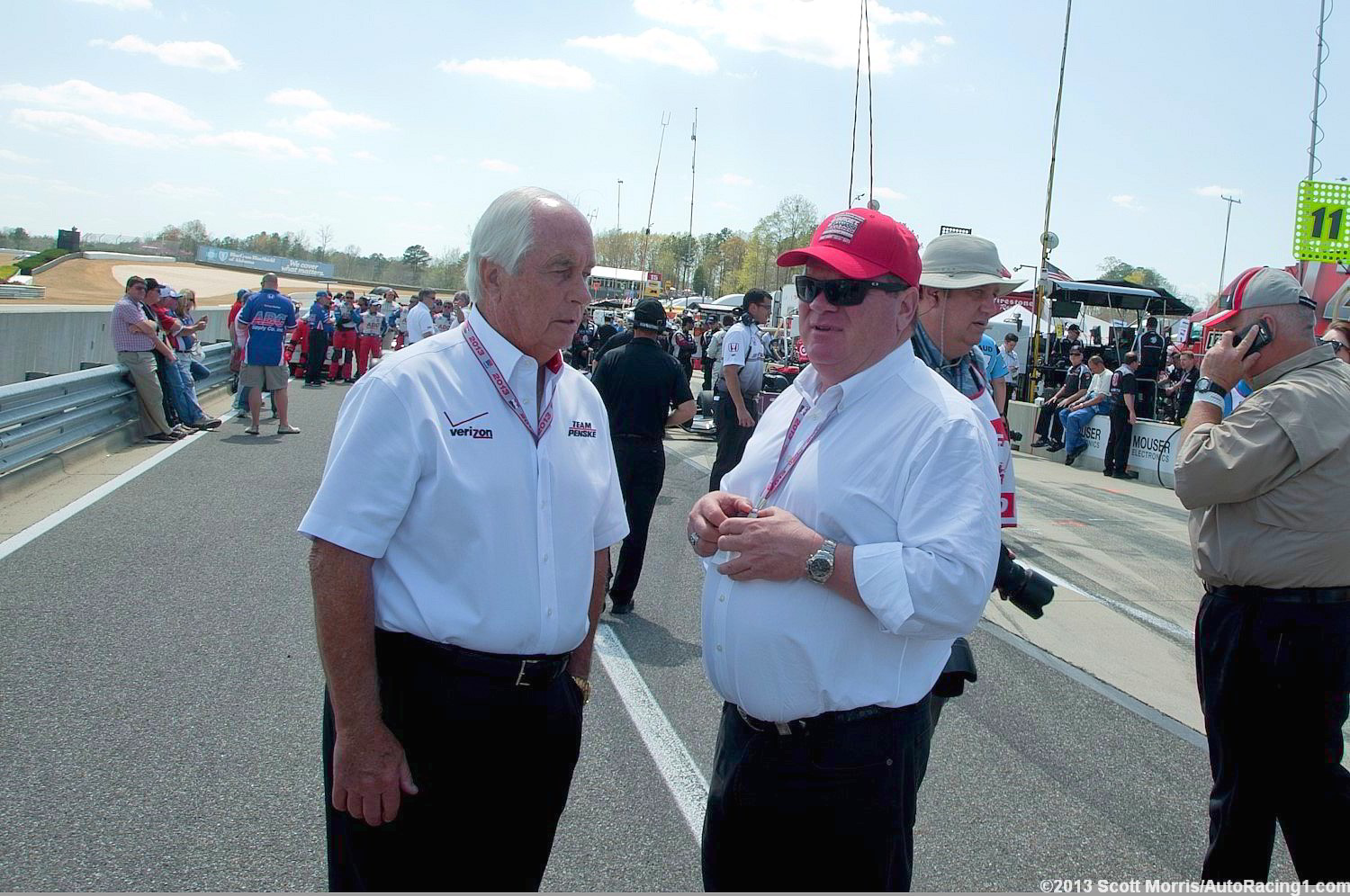Penske, Ganassi against faster speeds in Indianapolis 500
 |
| Penske and Ganassi against record breaking speeds at Indy. Maybe they have been watching too much taxicab racing. |
As Indianapolis 500 executives push to have speed records at Indianapolis Motor Speedway broken by the 100th race in 2016, Chip Ganassi and Roger Penske are among those pushing back.
Safety is one of their concerns, cost is another.
The track records have stood since 1996, and challenging them again is seen as a way to increase interest in the event specifically and the sport generally.
"I think it's a nice idea; I think it's meant well; I think it's exciting," Ganassi said as the Verizon IndyCar Series prepares for Sunday's season-opening race, the Firestone Grand Prix of St. Petersburg. "I think there's a lot of baggage that comes with it, and I'm not interested in carrying that baggage.
"Maybe someone else is."
In 1996, before IndyCar's equipment changed, Arie Luyendyk ran 237.498 mph for one qualifying lap, 236.986 mph for a four-lap average.
Ganassi went to Derrick Walker, IndyCar's president of competition and operations, with his concern. Walker described the conversation.
"Chip said, as he does with his hands, 'You know this speed thing,' and he gives me one of those looks," Walker said Saturday.
Walker explained that IndyCar will not do anything to artificially increase speeds, but that doesn't mean they won't come through engine development and, new for 2015, aerodynamic kits built by high-tech companies on behalf of Chevrolet and Honda.
Some have estimated aero kits could have a 10 mph impact at IMS.
"Certainly you've got to really manage that speed in a responsible way," Walker said. "It's not that we're trying to go quick; if we go quickly safely enough I don't think we're saying we necessarily object to that, but we aren't trying to artificially ramp the speeds up by the rules we decide. It's got to be done in an orderly fashion if it's going to be done at all.
"Right now we don't have any plans to do any major changes in the rules to make speeds go up."
Penske said speed is overrated in this economically challenged era of the sport, in part because of the cost involved in preparing two types of cars _ one for qualifying, one for the race.
"I've always said that the only reason people know how fast the cars are going is when they announce it," Penske said. "I don't think you can tell a car that's going 230 (mph) from 240 unless someone says it's a new track record.
"We can't race at those speeds, and I think it adds costs if we're going to race at a lower speed and have to run that fast to qualify. Look, that's someone's idea. We're qualifying almost 230 now."
Penske wants race speeds at IMS to be around 218 mph.
"(That's) where the guys can race and pass on the outside," he said. "That's what we need to make sure we have."
With cars pulled around the track last year via a larger-than-normal draft, the 500 won by Tony Kanaan produced record-breaking numbers: 68 lead changes by 14 drivers.
Ironically, the car that won the pole _ driven by Ed Carpenter at 228.762 mph _ was the one Walker was involved with as team manager.
"That's pretty fast," Penske said.
"Speed comes naturally," Walker said. "It's not going to come because Derrick Walker thinks we should be going 240 mph." USA Today
